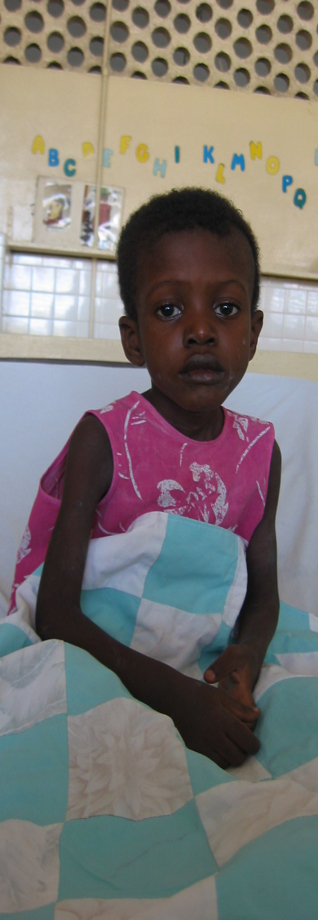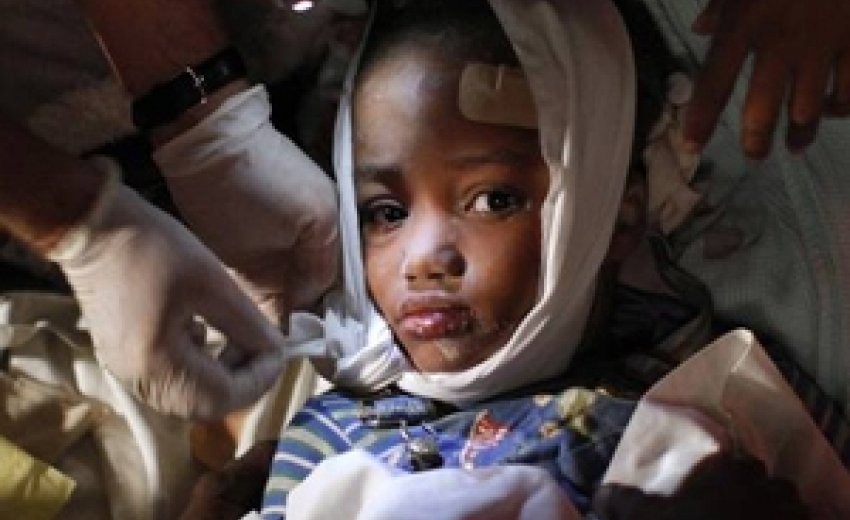
 Baljinder Singh Bathla learned of the earthquake that devastated Port-au-Prince, Haiti, while watching CNN in his South Loop townhouse in Chicago, Illinois, U.S.A., the morning of Jan. 13, 2010, the day after the disaster struck the Caribbean nation.
Baljinder Singh Bathla learned of the earthquake that devastated Port-au-Prince, Haiti, while watching CNN in his South Loop townhouse in Chicago, Illinois, U.S.A., the morning of Jan. 13, 2010, the day after the disaster struck the Caribbean nation.
As it happened, he and his wife, Sagina Kaur Hanjrah, both doctors, had been planning a trip in early 2010 to Ecuador to volunteer their medical skills in a small village. But that trip had fallen through. So by the evening of the first day following the quake, as the extent of devastation was becoming clear, the husband and wife were discussing traveling to Haiti to pitch in.
They reached out to staffers from an organization called the United Sikhs.
Both Baljinder and Sagina are Sikh-Americans, and Sagina, a family doctor in Chicago, is Medical Director for the group. United Sikhs was planning its own efforts in Port-au-Prince. The couple decided to assemble a medical relief team to assist the earthquake's injured survivors, working in Haiti from Feb. 1 through Feb. 8.
It wasn't the first time Baljinder and Sagina have offered their skills in a disaster zone. The couple has made medically related volunteer work as a regular part of their practice, including stints in Thailand following the 2004 tsunami and New Orleans after Hurricane Katrina in 2005. Sagina also worked in a tuberculosis clinic in India with several medical students of hers. Haiti was an obvious place to focus their efforts.
"Ideally, it's what you kind of want to do. I think everybody, when they start medical school, everybody has that in them that they want to do something," said Baljinder, a rehabilitation doctor with a practice near 16th and Indiana. "But we both are in specialties where we can kind of do that, we can get away a little bit."
After making the decision to go, Baljinder and Sagina began collecting medical supplies from colleagues, pharmacists and clinics, pulling together an estimated $45,000 in supplies. They gathered in New York with other volunteers, and then together flew to Santo Domingo, in the Dominican Republic.
A 10-hour drive had them in Port-au-Prince.
And then the work began.
"I would see a lot of spinal cord injuries. I saw a lot of amputations. I saw a lot of fractures and so forth that had been repaired but people had moved on," Bathla said.
"We saw a lot of people with wounds, a lot of colds. I had a lot of people living close to each other and so there was lots of diarrhea, a lot of stomach flus and things like that," Sagina said. "Everybody getting sick."
There were infections to deal with, too. Baljinder worked with recent amputees, patients who needed help using their muscles to avoid a contracture, where a muscle becomes stuck in a particular position following surgery.
Dehydration was a constant problem. During their stay in Haiti, basics were still in short supply.
"We'd go to these little tents and people would immediately get right up to us, because they think we have food or water on us," Baljinder said.
Finding patients wasn't a problem, tragically. Baljinder and Sagina networked with non-governmental organizations on the ground in Port-au-Prince, visiting the displaced persons camps that appeared following the quake. They passed out water purification tablets. They gave pregnant women birthing kits and administered Pedialyte, a rehydration medicine, to children.
Of the disaster zones where both have served, Sagina said Haiti was the worst off - a function, she said, of the country's already existing troubles.
"In Haiti, everybody's so poor. People are unemployed. There's really poor infrastructure to begin with, and you've had this earthquake," she said.
According to Baljinder, there's a huge need for tents. A rainy season would wash away the flimsy, improvised shelters survivors are calling home, presenting a new set of challenges just as the long recovery begins.
He said, he and his wife feel obligated to volunteer their abilities in disaster zones because of the immediacy of medicine.
"You have a skill set where you can go somewhere and you can do something right away. Especially when something like Haiti comes up, where there's not a big medical establishment there," he said. "It's somewhere where you're really needed, to help. I guess that's kind of why we did it."
He may travel back to Port-au-Prince this spring.
[Courtesy: The Chicago Journal]

